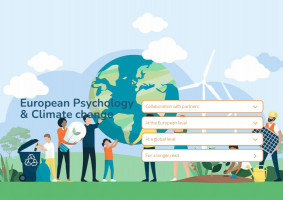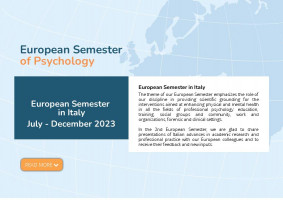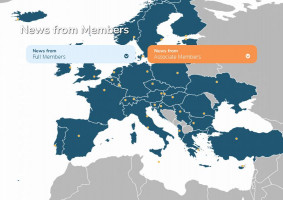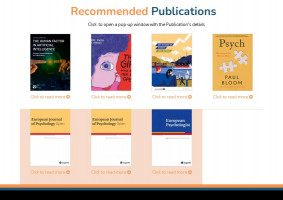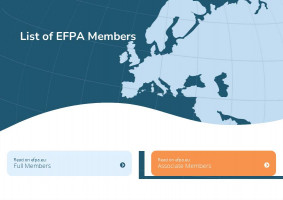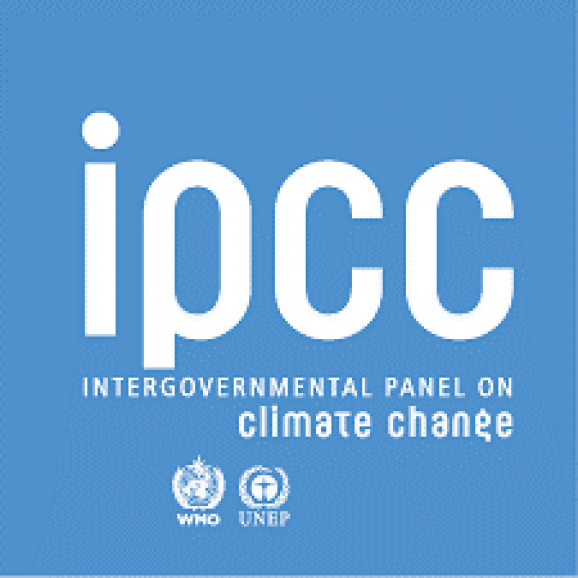
Since October 2022, Professor Tobias Brosch, chair in sustainability psychology at the University of Geneva, acts as representative of the American Psychological Association (APA), the European Federation of Psychologists' Associations (EFPA), and the Swiss Federation of Psychologists (SFP) to the United Nations in Geneva.
The synthesis report gives an overview of the state of knowledge on climate change, highlighting new developments since the previous synthesis report in 2014. The European Commission welcomes the report and reaffirms its commitment to ambitious climate action.
In this position, his task is to create connections between psychological science and the work of the UN by fostering dialogue and information exchange among psychologists, UN staff, member state representatives, and NGOs, with the aim of encouraging the development of psychologically-informed policies and programs to help achieve the UN Sustainable Development goals.
More information
Back to top

EU side events at COP28
COP28 is just around the corner. As well as participating in the negotiations, the EU is also organising a vibrant program of side events on the margins of the Conference. It doesn’t matter where you are, you can tune in and get involved in all their events.
More information
Roundup from EU Climate Action
This edition, we draw to your attention some interesting points from the August edition of EU Climate Action.
New Eurobarometer survey
Environmental awareness is on the rise: according to a new Eurobarometer survey, 93% of EU citizens see climate change as a serious problem, while 58% of them believe that the green transition should be sped up. Extreme weather events hitting our continent this summer, such as severe wildfires and floods, are a grave reminder of the urgent need to ramp up climate action.
More information and access the survey
Building a climate-resilient future
The European Commission has on 26 July 2023 adopted a new set of guidelines to assist Member States in updating and implementing comprehensive national adaptation strategies, plans and policies.
The guidelines represent a powerful tool for national administrations to make climate adaptation a top political priority. The Commission seeks to support Member States to adopt a whole-government approach to climate adaptation policy-making by way of multilevel coordination and mainstreaming, both horizontally, between different departments and vertically, at all levels of sub-national authorities (including regions and local administrations). The guidelines also include a comprehensive list of key features of adaptation policy, which should be applied to the overall national adaptation policy framework.
These key features include:
- a call for legal frameworks instead of soft policies;
- regularly updated adaptation strategies and plans;
- climate risk assessments, based on the results of regular stress testing of infrastructure and systems;
- involvement of all relevant stakeholders, including those particularly vulnerable to climate change as well as those who might be important agents of change in the planning and implementation of adaptation actions.
- involvement of all relevant sectors and all levels of public administration, endowed with sufficient personnel and financial resources;
- continuous monitoring and evaluation of all adaptation actions.
Background information and access guidelines
Subscribe
If you want to receive the EU Climate Action newsletter directly, you can subscribe here
Back to top
WHO clearly connects the climate crisis with health leading up to COP28
On 18 September WHO announced that Heads of State and leading experts in health and climate gathered to discuss critical concerns around the intersection of climate and health priorities ahead of the UN Climate Conference’s (COP-28) first-ever ‘Day of Health’. The event was held at the beginning of New York Climate Week during the UN General Assembly in New York, USA.
More information
Back to top
IAAP Bulletin - Volume 5, Issue 3
The International Association of Applied Psychology IAAP has just published an issue of their bulletin Applied Psychology Around the World (IAAP Bulletin, Vol. 5, Issue 3, October 2023) on Sustainable ConsumptionIn the issue, Dr. Lori Foster, IAAP President, has written a column, titled The Sixth P: Psychology and Sustainable Consumption. There are other very interesting articles, we draw your attention in particular to one co-authored by Tobias BROSCH who is also one of the representatives at the UN in Geneva for the APA, EFPA and FSP collaboration about which we have written in this newsmagazine several times.
See the article Using Behavioral Insights to Promote Sustainable Consumer Decisions. Mario Herberz & Tobias Brosch. Department of Psychology and Swiss Center for Affective Sciences, University of Geneva.
Read Dr Lori Foster article here
Affective Sciences: A Missing Link to Delivering the 2030 Agenda - SDG Lab commentary in Emotion Review
Readers may be interested in this article by the UN SDG Lab on emotional barriers to achieving the SDGs.
This was published in a special issue of the journal, Emotion Review, and is helping to shape the thinking of the APA, EFPA, FSP collaboration to bring psychology to the UN in Geneva.
In the synopsis the authors write:
With just over seven years left to achieve the 2030 Agenda for Sustainable Development, this commentary in the peer-reviewed journal Emotion Review provides the SDG Lab’s perspective on how better understanding emotions could serve as the missing link to greater progress towards the 17 Sustainable Development Goals (SDGs) and long-term sustainability."
Back to top
(1)_w1700_h406_1.png)




